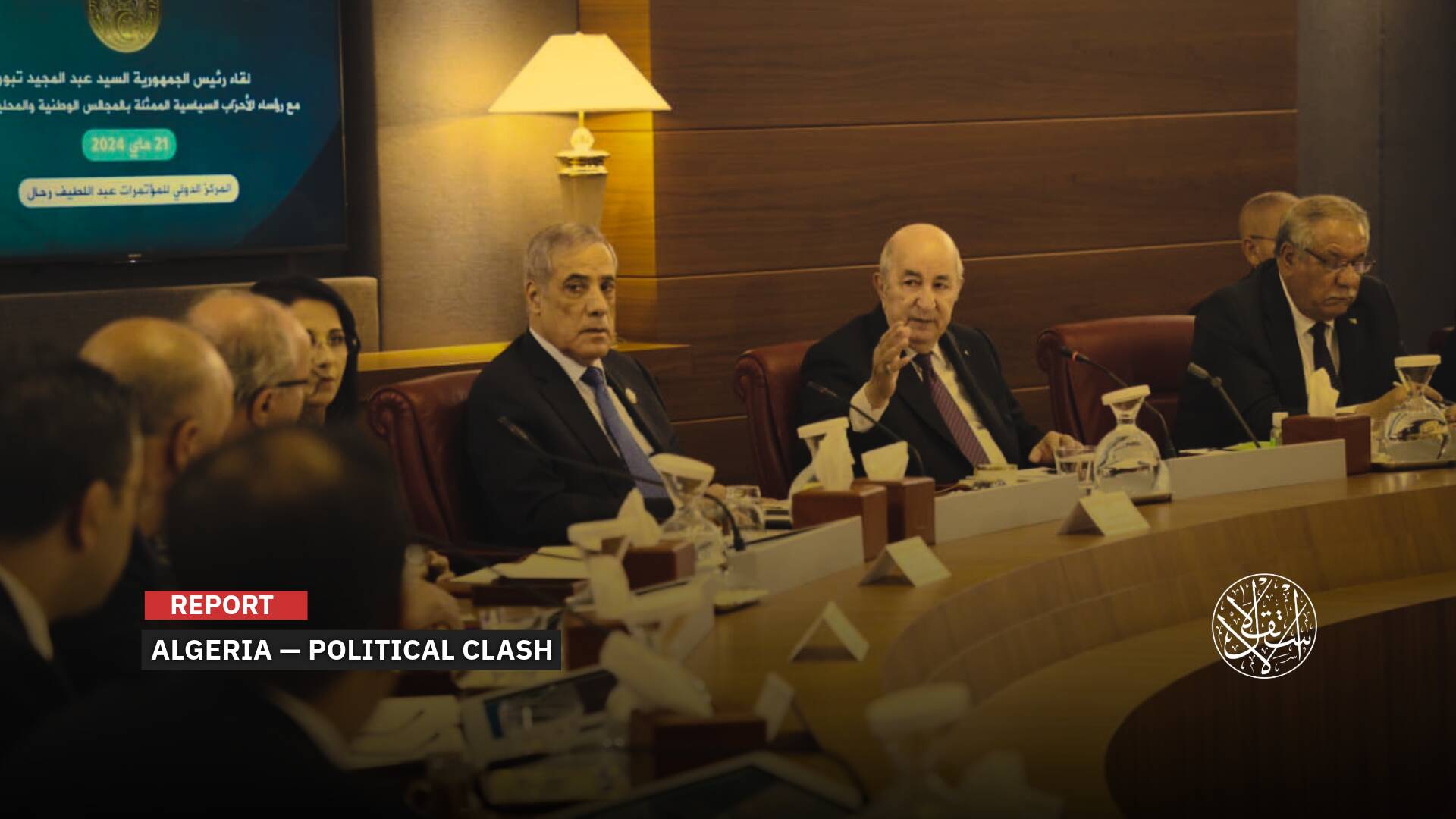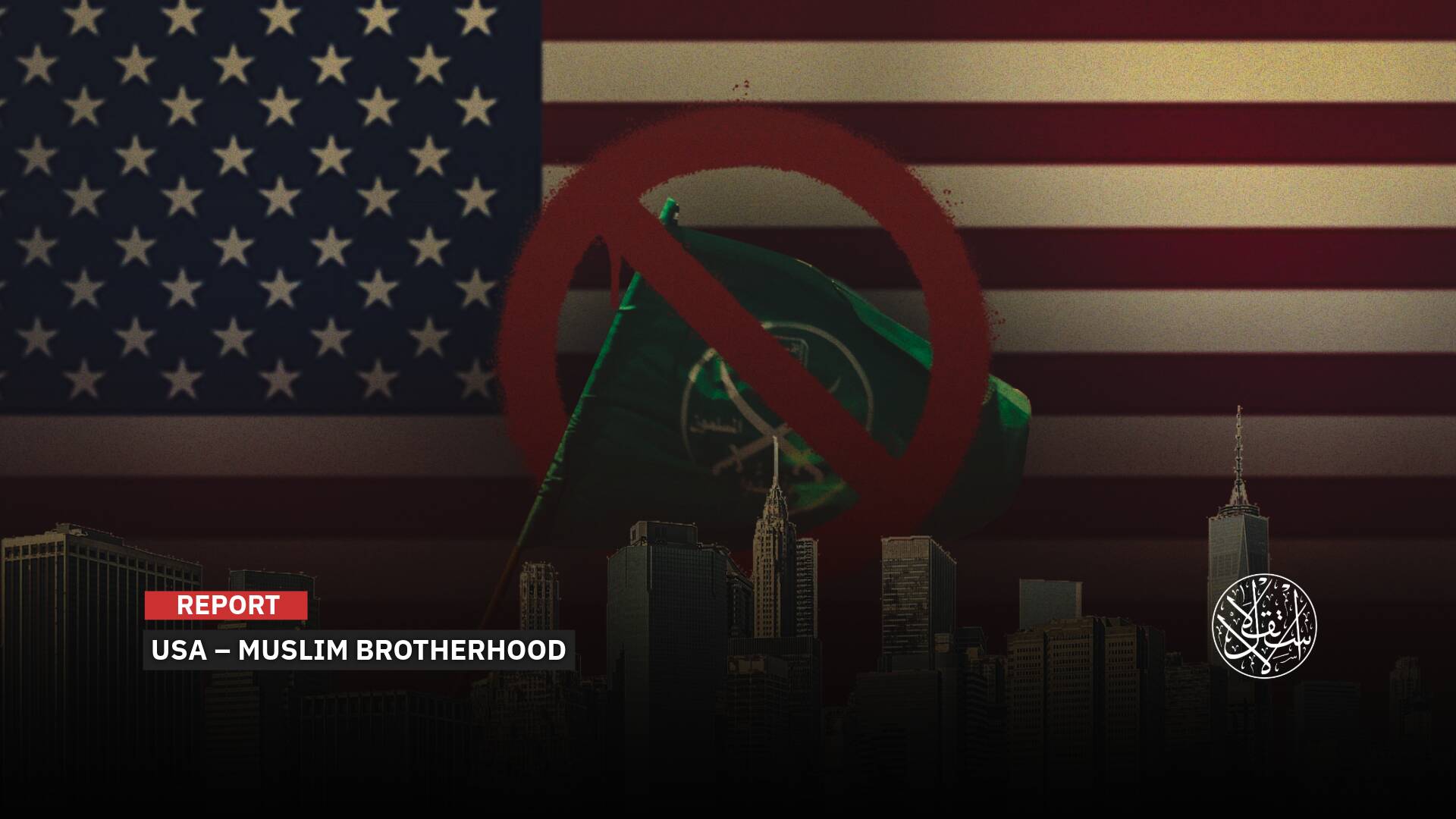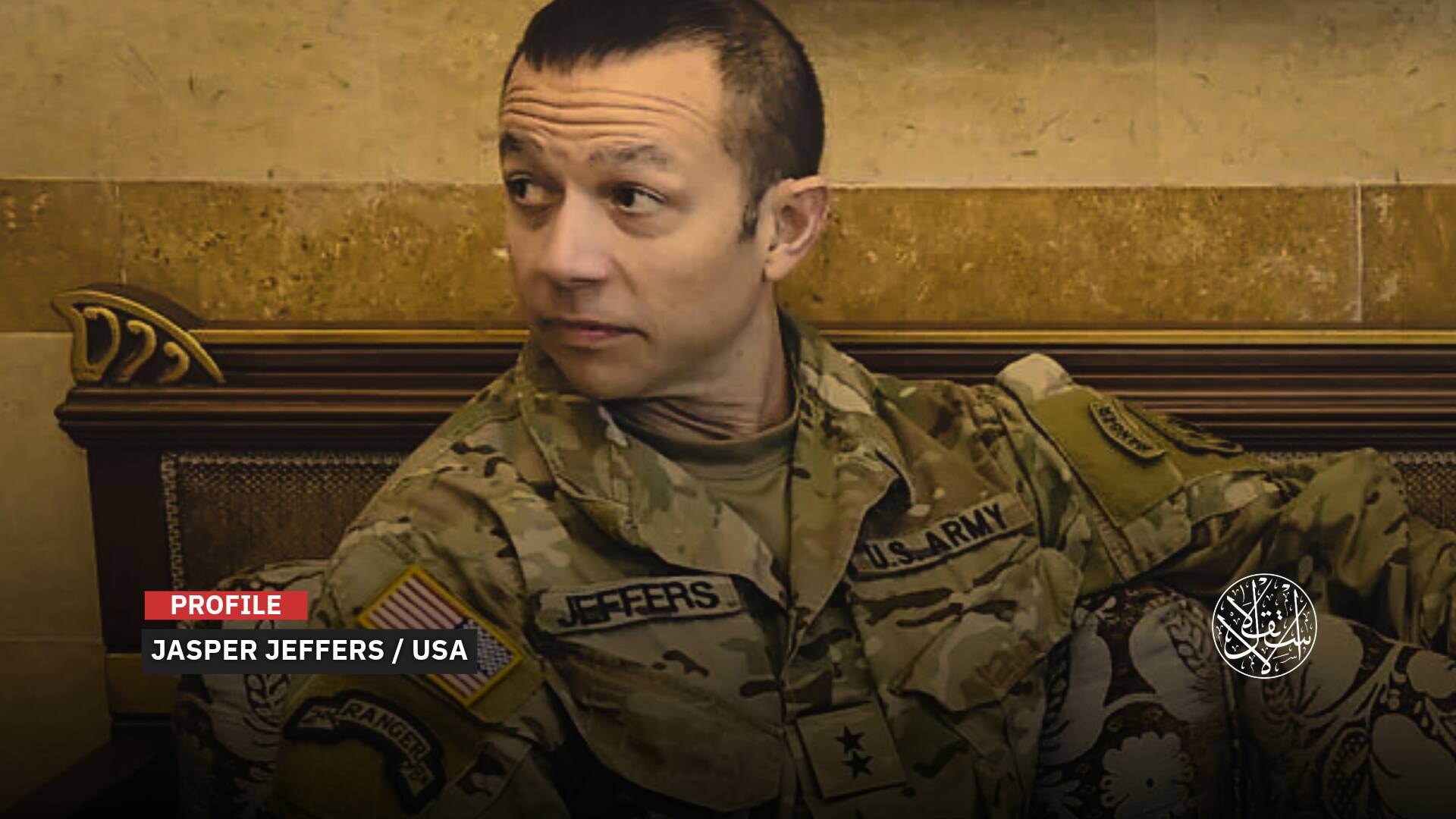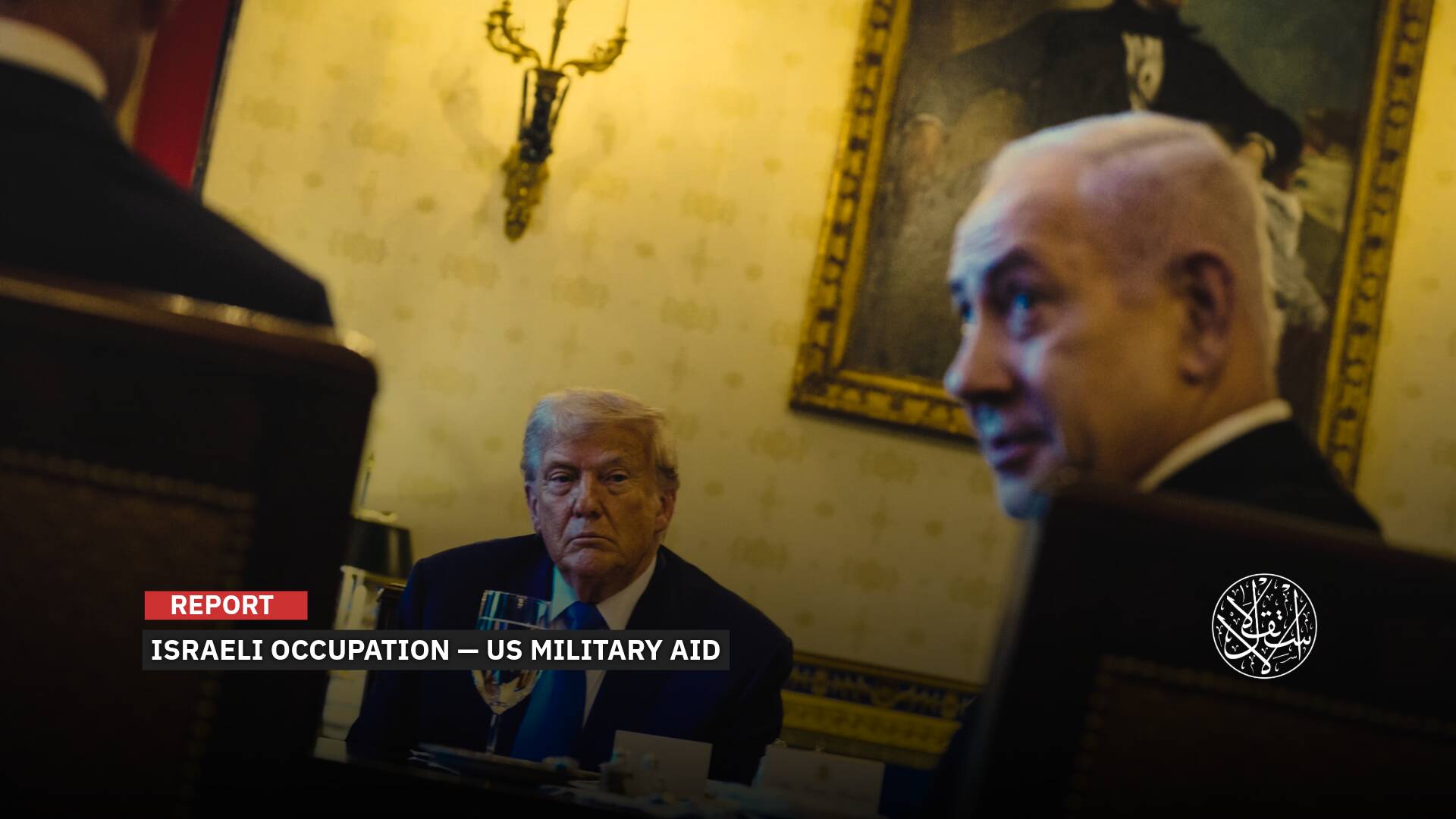Harsh Measures: How Does the Russian Regime Silence Opponents of the Ukraine War?
.png)
Arrests and repression are escalating within the Russian Federation to silence voices against the invasion of Ukraine at a time when Moscow is struggling with its military setbacks there by stepping up air strikes on the neighboring country’s infrastructure.
Very few people in Russian cities openly oppose the war because of the arrests, the fines, and the harsh measures, so they cannot take the risk and speak out against what is going on.
This is in addition to those arrested and at risk of being detained for years or losing their job and business.
Mass Arrests
The charges against critics of Russian President Vladimir Putin’s war on Ukraine since February 24, 2022, and the corresponding prison sentences of up to ten years, stand as a stark measure of how the Kremlin has intensified repression of critics of the war.
In a new crackdown on Russian citizens opposed to the invasion of Ukraine, Radio Free Europe/Radio Liberty reported that the Primorsky District Court, located in the city of Arkhangelsk in northwestern Russia, ruled on January 4, 2022, to place Olesya Krivtsova, under house arrest until her trial date.
Krivtsova, 19, could face up to seven years in prison after she republished criticism concerning the Ukraine war.
This girl was arrested after she published a post by activist Ilya Leshukov and a story about the Crimean Bridge explosion on Instagram.
The Crimean Bridge, which extends over the Kerch Strait, was partially destroyed in October 2022 as a result of a powerful explosion attributed by the Russian authorities to a truck bomb and accused the Ukrainian intelligence service of standing behind this.
In May, a Russian teenager was fined 30,000 rubles ($412) for defaming the army by publishing several anti-war pamphlets on Lenin Square in Arkhangelsk.
The arrest of Krivtsova is one of Moscow’s latest attempts to silence Russian activists opposed to the war in Ukraine.

Criminal prosecutions against Russian activists, politicians, journalists, and even ordinary Russian citizens in big cities and remote towns are on the rise.
Dozens of Russian citizens face prison sentences of up to 10 or 5 years with hard labor or fines of up to $77,000 for publishing “false information” about the army.
More than 2,000 people have also been charged with lesser offenses, according to the human rights group.
Being an anti-war activist in Russia is dangerous, and rights groups say more than 16,000 people have been arrested across the country for anti-war actions.
Shutting Mouths
Russian citizens say it is hard “to breathe” in their country because of total censorship, as people are persecuted for simply saying the word “war” in public.
Vladimir Efimov, a local politician in Russia’s far eastern Kamchatka Peninsula, has been accused of “defaming the army” and ordered to pay a $500 fine three times over anti-war photos he posted on social media.
When he continued sharing battlefield images, such as the total destruction of the Ukrainian port city of Mariupol under Russian bombing, prosecutors escalated the charges to felony, a penalty of up to five years in prison or heavier fines.
While 23-year-old Dima Ivanov, a student from Moscow State University, was running a popular channel on social media and published anti-war material in April 2022, he was arrested and charged with serious crimes as he faces between 5 and 10 years in prison.
Still worse, in August 2022, the Russian authorities blocked the social media account of the Russian human rights organization OVD-Info due to its media coverage of the Ukraine war, which monitors the organization and reports on political persecution in Russia.
The state of strict monitoring of non-governmental media and social media platforms appears as if an electronic army is fighting at home against them along with the ground forces on Ukrainian soil.
On the second day of the war, a secret protest movement emerged; these anonymous people presented an anti-war message through spray-paintings on the sidewalks and walls, mostly targeting mothers who may one day have to send their children to the invasion.

Observers stress that it is very difficult to gauge the number of people who oppose the war in Russia, although government and opinion polls conducted by independent researchers estimate the level of public support for the military campaign at about 70%.
Inner Fear
However, critics say polls cannot be trusted under an “autocratic regime like Russia,” where people often give dishonest responses for fear of repercussions.
This is in addition to the Russians’ reluctance to talk about politics openly with outsiders in light of the ongoing invasion of Ukraine.
In March, days after the invasion began, Russia’s parliament passed a series of new laws making it illegal to use the words “war” or “invasion” in connection with Russia’s military campaign in Ukraine, as Moscow calls it.
Also, on March 6, 2022, the Russian police arrested more than 5,000 people in 69 cities across the Russian Federation for protesting Moscow’s unprovoked invasion of Ukraine.
In all, some 13,500 anti-war activists were arrested in Russia, sometimes brutally, in the first two weeks after the invasion, according to OVD-Info, a media project that monitors repression in Russia.
In the face of the hidden state of popular pressure, Moscow seems vigilant against facing strong criticism of the invasion of Ukraine that may come out more publicly and resorted to strengthening its internal laws to serve the course of the war.
In December 2022, the Russian Duma considered and adopted 12 repressive laws.
A bill was also adopted to introduce administrative responsibility for the production and distribution of maps and other images that “contradict the territorial integrity of the Russian Federation.”
After the Ukraine war, even residents of other nationalities in Russia are prohibited from expressing any form of objection to the invasion.
Laws of Oppression
The State Duma adopted on December 12 in the second reading amendments to bills that change the norms of the Code of Administrative Offenses in relation to “foreign agents.”
In this context, OVD-Info monitored, during December 2022, 30 new defendants in anti-war criminal cases against Ukraine.
While in November, the indictment of 37 Russian citizens in 25 cities was documented in anti-war criminal cases.
OVD-Info provided examples of arrests, including the arrest of a former teacher named Nikita Tushkanov after he published a photo of the explosion on the Crimean Bridge.
Ilya Yashin was also sentenced to 8.5 years in prison for broadcasting the massacres in the city of Bucha, northwest of Kyiv, at the end of March 2022.
At that time, the world received a great shock after revealing horrible scenes of the corpses and the mass grave in which about 300 people were buried in the city of Bucha, which was found after the withdrawal of the Russian forces from there.
The Ukrainian atrocities shook the world to the extent that US President Joe Biden described his Russian counterpart Vladimir Putin as brutal.
The moves of the Russian authorities to block all the outlets from which anti-war voices come out on neighboring Ukraine were comprehensive.
From November 24 to December 24, the Russian authorities recognized two “undesirable” organizations in the country, namely the analytical center, Riddle, and the Russian Anti-War Committee in Sweden.
Since February 24, human rights organizations have documented the inclusion of 23 organizations in the list of undesirable organizations on the territory of the Russian Federation.
The Russian authorities also blocked news portals, many links to opposition portals, and websites criticizing the invasion of Ukraine.

One of the methods of pressuring the voices against the invasion of Russia, as monitored by OVD-Info, is to take some critics to the sites of military operations under the heading of partial mobilization.
The artist Daniil Shershnev, who opposed the war, was sent to a military unit in the Tver region for military service.
In Samara, in the southeast of the European part of Russia, liberal Igor Peshastnov was forcibly taken to the military registration and enlistment office, and the draft board decided to send the activist to the army.
The next day, Igor wrote that he was in Kazakhstan without explaining how he crossed the border.
Putin announced partial mobilization on September 21, 2022, to recruit 300,000 people, from 35 to 70 years old, according to military rank and qualifications.
Labor market economist, Vladimir Gimpelson, said in an interview with the Financial Times at the end of November 2022 that the partial mobilization means there will be fewer healthy, educated, and strong people, those who make the country’s GDP.
If economic growth is the government’s priority, “then I would call this a disastrous mistake,” he concluded.
Sources
- https://www.newsweek.com/russian-teen-may-face-years-jail-reposting-criticism-putins-war-1771610
- Thousands Swept Up as Kremlin Clamps Down on War Criticism
- Ukraine war: The Russians risking freedom to protest against Putin's invasion
- Restriction of the right to freedom of assembly [Russian]
- Russians fleeing repression say it is getting hard to breathe in their country











